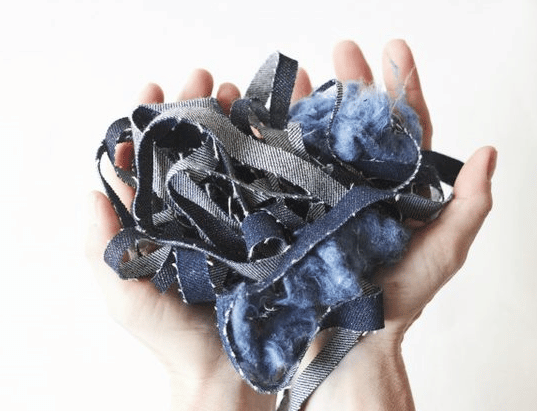The most sustainable garment is the one that is not produced. This is a phrase by Álex Penadés, Brand Director of the sustainable innovation company Jeanologia, which sums up why it is so important to seek a fashion system that is circular and truly sustainable.
According to the Spanish Organization of Consumers and Users, the fashion industry is responsible for 10% of global CO2 emissions. In addition, it requires a high water consumption – a resource whose shortage will be the number one environmental issue in countries such as Spain by 2040. It takes 2,700 liters just to manufacture a single cotton T-shirt. This is equivalent to the water consumption of one person for two and a half years. Moreover, 20% of the contamination of drinking water worldwide is caused by the production of fabrics to make clothes.
Another serious problem related to fashion and the textile sector is waste. In Europe alone we throw away about 11 kg of textiles every year, 90% of which are incinerated or deposited in landfills, thus polluting the environment.

Precisely because of the high level of pollution generated by our clothes, the Spanish government has implemented a Law on Waste and Contaminated Soil. This new regulation came into force in the first quarter of 2022 and requires unsold clothing to be recycled and discourages mixing materials excessively in their manufacture. All this with the aim of achieving a deposit-return system for textiles.
With this new Law on Waste and Contaminated Soil, destroying surplus fabrics will no longer be an option and these textiles will have to be reused, firstly by direct reuse channels (such as donation) and, when this is not possible, by preparing their reuse.
In addition, by 2025, producers will be responsible for the waste generated once it leaves the store, and they will be obliged to manage this waste in an appropriate manner, i.e. with differentiated textile waste collection systems.
The objective of textile producers having to properly manage this waste is to close the textile cycle for subsequent reuse or recycling. This entails the substitution of raw materials and minimizes waste in landfills thus reducing emissions.
The law also intends to raise public awareness of waste management and climate change through the intelligent and optimized use of raw materials, the reduction of emissions and the preservation of such a precious resource as water.
The medium-term outlook is that methods such as the circular economy will cease to be an option and become an obligation and a preference by all for all.
And how will the sector evolve in the face of this paradigm shift? In our next article we will evoke the trends among companies in the sector and the best strategies for the textile business to adapt to the coming paradigm shift, because thanks to the environmental ethics consumers are acquiring, responsible consumption and ethical fashion are here to stay.
In addition, here is a preview for you: at EVLOX we are already addressing this challenge with the creation of a new company through which we will collect cotton fabrics to recycle and use in our denim. Soon we will be able to tell you more.
In any case, if you would like to learn more about our sustainability initiatives, such as the use of sustainable materials such as hemp, among many other actions, please visit us for more information and stay tuned to our blog and social networks!